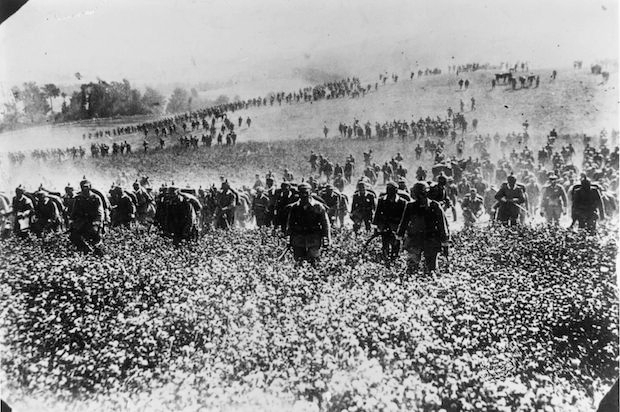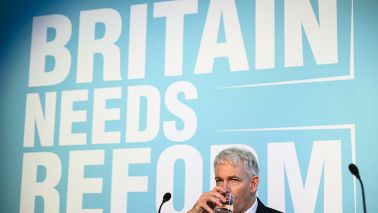From ‘A Proud Moment for Unionists’, The Spectator, 19 December 1914:
The plight of Belgium was none the less only one of the causes which made it imperative for Britain to take up arms. It is always agreeable when stating a case for oneself to emphasize one’s most chivalrous motives. It is for this reason alone, so far as we can discover, that when an Englishman is asked to-day what reasons drove his country into war, he will say : ” We were bound to protect Belgium.” So we were; and if there had been no other reason we must have joined the issue with Germany. But, as it happened, there were other very cogent reasons —so cogent that, in our opinion, we should not have hesitated for one instant about going to war even if the violation of Belgian territory had never been dreamed of by Germany. What may be called the Belgian motive has somehow set itself in the forefront so successfully that it has eclipsed all the other motives.
If Germany had decided to try to invade France by the direct route instead of by way of Belgium, we should still have been under a profound obligation to help France and Russia. It is useless to tell us that we were free to act as we pleased. There are many situations in life in which a man is legally free to do what he likes, but in which, if be claims his release from an obligation on some technical point, he marks himself for ever as a false dealer, a man who cannot be trusted, a selfish brute who sacrifices everything to his interests and his pernicious egotism. All our dealings with France—our sanction of her line of policy, our military ” conversations ” with her Staff, our definite association with her acts abroad—had committed us to her cause as plainly as though we had entered into a binding alliance with her. And what is true of our understanding with France is true in a scarcely less degree of our understanding with Russia. No doubt there were persons in England who, either because they preferred any sort of peace to war, or because they were mean enough to want to take commercial advantage of the opportunities that always fall to a tertius gaudens, argued up to the last moment that neutrality was our right policy.






Comments